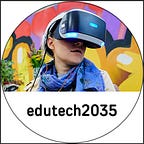University 2035 Platform. Best practices and services for distance online learning. Part 2
Implementation challenges
Demand on student time. One challenge was related to the lack of time that students had to spend following a personal learning path. Most Russian universities have switched to training via video conferencing and increased the number of homework assignments for students. The students found themselves in an unfamiliar situation and were not ready to experiment with individual curriculum and undertake new project assignments. Despite this, 29 universities decided to join the initiative within one month of the start of the lockdown, and there were 4 300 students using the platform in June.
Lack of university budgets. Another challenge was the lack of a budget in universities. Universities spent a lot of time and budget on transferring lectures online and on measures to combat COVID-19, and could not spend more on personal and project training. As a result, University 20.35 has to cover the costs of online courses mainly from its own budget and this limits the number of students that can be served by these courses. However, numbers remain relatively substantial: in November 2020, University 20.35 had 59 universities and over 10 000 students and offered courses from over 10 educational platforms, including Coursera.
Moving beyond student audiences. It was clear that students were not the only category that could benefit from online learning and University 20.35’s platform during the pandemic. University 20.35 therefore designed projects to enable technology and digital content to benefit various audiences. For example, In September 2020, University 20.35, with the financial support of the Russian government, launched a new project for all citizens based on digital certificates: anyone could get a certificate and use it to take online courses from various educational organisations and online platforms. The main goal was to give citizens new competencies in digital professions in order to improve their professional experience in new circumstances or to get a new job. As a result, 33 000 citizens from 48 regions received a certificate and began training on the University 20.35 platform.
Transforming existing programmes into new formats. University 20.35 had to carefully innovate to ensure that they were able to deliver their existing programmes in new formats that met different needs during the pandemic. For example, in November 2020, University 20.35 successfully implemented a new format of a two-week online programme and the world’s first accelerated learning and intensive learning programme for teams and start-ups creating products based on AI technologies. More than 700 teams were selected from 16 000 individual and 1 800 team entries. In the digital space, 11 000 events were held with the participation of more than 800 experts and teachers from 28 universities and 118 industrial companies.
Monitoring success
In general, in 2020, the number of users of the University 20.35 digital platform has increased from 110 000 to 430 000 people. Thus, over 300 000 people began their personal educational journey using AI-based recommendation systems analysing their digital footprints. The new STEPS service has become a useful tool for teachers and professors of Russian universities — over 1 200 digital spaces have been created. The GO Online platform is still popular in the community of teachers and professionals and is used to find, develop and implement new technologies, but the focus of new innovations has shifted from online technologies to personalisation and student engagement.
Adaptability to new contexts
The initiative is open to every institution and student in Russia and all universities could join. Participation does requires a certain level of internal culture, openness to cutting-edge solutions such as the use of AI, and readiness for technological changes. The resources created during this crisis are likely to continue to be used after the pandemic and will be developed further.
The experience of University 20.35 and its platforms could be used in every country where digitalisation of higher education is part of the national strategy.
Key points to keep in mind for a successful adaptation
1. Build on your existing experiences and the resources already developed and make them available to a larger audience
2. Ensure online platforms and channels are easy to use, by:
- making the interface user-friendly and informative
- testing the platform and its content with potential users
- providing guidelines for teachers and students and rapid help service available on the platform
- partnering with social media
- gathering useful materials and tools for students, teachers and university management
- being open to every institution and student
- having different levels of content: for beginners and for those who are more experienced
3. Learn from your experiences to propose rapid solutions to vital problems in an iterative process
4. Create a community of like-minded partners
5. Use technology (AI, Big Data) for analysis to inform individualised learning pathways for both students and faculty members and to provide universities with aggregated data on students’ activities
6. Demonstrate benefits in order to motivate users to change by:
- showcasing examples and successful stories and sharing experience of others
- explaining the necessary steps to achieve goals
- providing opportunities to develop 21st century skills
- giving personalised recommendations for development to each team member
- collecting materials and tools to support teachers to build their knowledge of online learning advantages
7. Provide necessary support and tools, such as:
- educational social services for teachers to create their own educational space with various online resources from any platform
- tools to facilitate team work, joint project work, discussions and communication between students
- online channels on social media
- lists of free available courses and material
- a tool to build personalised learning paths
8. Bring knowledge together and become a communication platform for sharing experience and best practices to support the digitisation of higher education institutions, during and post pandemic.
By Polina Zavalina and Ekaterina Lyubimova
